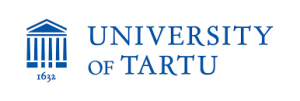

5th Annual Tartu Conference on Russian and East European Studies: Post-Socialist (dis)Orders
Sun, 07 Jun 2020 - Mon, 08 Jun 2020
Tartu, Estonia
Scholars working in all subfields of area studies, including comparative politics, international relations, economics, history, sociology, anthropology, cultural studies and related disciplines, are invited to submit proposals for panels, roundtables and papers for the Fifth Annual Tartu Conference on Russian and East European Studies.
The Tartu Conference is a venue for academic discussion of the fundamental cultural, social, economic and political trends affecting all aspects of people’s life in Russia and Eastern Europe. Inaugurated in June 2016 as the flagship event of the Horizon 2020 UPTAKE consortium, this forum brings together scholars from across multiple disciplines, from the region and beyond. The 2020 Tartu Conference is organized by the UT’s Centre for EU–Russia Studies (CEURUS) in cooperation with the PONARS Eurasia research network. As in previous years, the organizers expect the number of participants to exceed 200.
The collapse of socialism was greeted both in the East and in the West as a return to civilization, a resumption of the normal course of history after the communist experiment. The general expectation was that after a period of transition, former socialist countries would become market democracies, rendering obsolete the very notion of Eastern Europe. Thirty years later, it is clear that the post-socialist world has developed as a complex hierarchy of geographic and social spaces, where diverse identities and historical legacies produce specific political, economic and cultural dynamics. As a result, the region remains a distinctive domain within the neoliberal global order, while also displaying a number of similarities with other areas, from Turkey to Latin America, which have never been part of the socialist bloc.
The Programme Committee will consider proposals addressing the above and related questions as well as other issues relevant to the development of Central and Eastern Europe, Russia and Eurasia from any disciplinary angle. Interdisciplinary perspectives are especially welcome.











